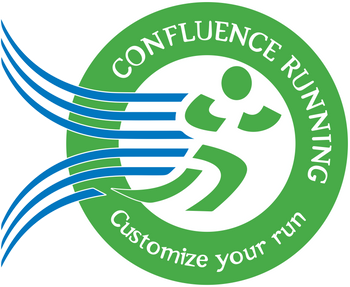The Intricate Dance: How Stress Impacts Your Running Journey
Introduction:
In the intricate web of our modern lives, stress has become an omnipresent force, affecting our mental and physical well-being. As runners, we often seek solace in the rhythmic cadence of our strides, yet the relationship between stress and running remains complex. Recent research sheds light on the profound impact of stress on running performance and efficiency, unveiling a nexus between psychological stressors and physiological responses. In this article, we delve into the findings of scientific studies and expert insights to elucidate the intricate interplay between stress and running, offering practical strategies to optimize performance and enhance efficiency.
The Impact of Stress on Running Efficiency:
Recent studies, such as one conducted in the Netherlands, have revealed a compelling connection between negative life events and running efficiency. Negative life events, ranging from bereavement to being a victim of a crime, have been shown to increase stress levels, impair recovery, and diminish running economy—a measure of running efficiency. This pivotal finding underscores the detrimental effects of stress on running performance, suggesting that stress may impede our ability to perform optimally by slowing us down.
Understanding the Mechanisms: Insights from Research:
Delving deeper into the mechanisms underlying the relationship between stress and running, research offers valuable insights into the physiological and psychological responses to exercise. A study published in the Journal of Sports Sciences elucidated the impact of pre-competition stress on endurance performance, revealing that athletes experiencing high levels of stress exhibited diminished endurance capacity. Moreover, research highlights the role of stress hormones, such as cortisol, in mediating the physiological response to stress, underscoring the importance of effective stress management strategies in optimizing running performance.
The Neurobiology of Running: Effects on the Brain and Body:
Beyond the physical exertion of running, the neurobiological effects of exercise on the brain offer further insight into the relationship between stress and running. Contrary to popular belief, the euphoric state known as "runner's high" is not solely attributed to endorphins but also to endocannabinoids—biochemical substances naturally produced by the body. These endocannabinoids promote short-term psychoactive effects, such as reduced anxiety and feelings of calm, contributing to the relaxed post-run sensation often experienced by runners.
Furthermore, regular cardiovascular exercise has been shown to spark the growth of new blood vessels in the brain and promote neurogenesis—the formation of new brain cells. These neurobiological changes contribute to improved cognitive function, enhanced mood, and reduced susceptibility to stress-related disorders, highlighting the holistic benefits of running beyond physical fitness.
Practical Strategies for Managing Stress and Enhancing Performance:
Armed with these insights, runners can implement practical strategies to manage stress effectively and optimize performance. Cultivating mindfulness and self-awareness can aid in recognizing the signs of stress and implementing relaxation techniques, such as deep breathing exercises, to promote physiological and psychological relaxation. Additionally, seeking support from sports psychologists or mental performance coaches can provide valuable guidance in navigating the psychological challenges inherent in running.
Furthermore, prioritizing rest and recovery, along with maintaining a balanced training regimen, is essential in mitigating the risk of overtraining and burnout. By adopting a holistic approach that addresses both mental and physical aspects of stress, runners can harness the transformative power of running to achieve peak performance and holistic well-being.
Conclusion:
In the dynamic interplay between stress and running, understanding the intricate mechanisms and implementing effective stress management strategies is paramount. By leveraging insights from research and expert perspectives, runners can navigate the complexities of stress and optimize their performance and efficiency on their running journey. With mindfulness, resilience, and strategic interventions, runners can transcend the constraints of stress, unlocking their full potential to thrive both on and off the track.

